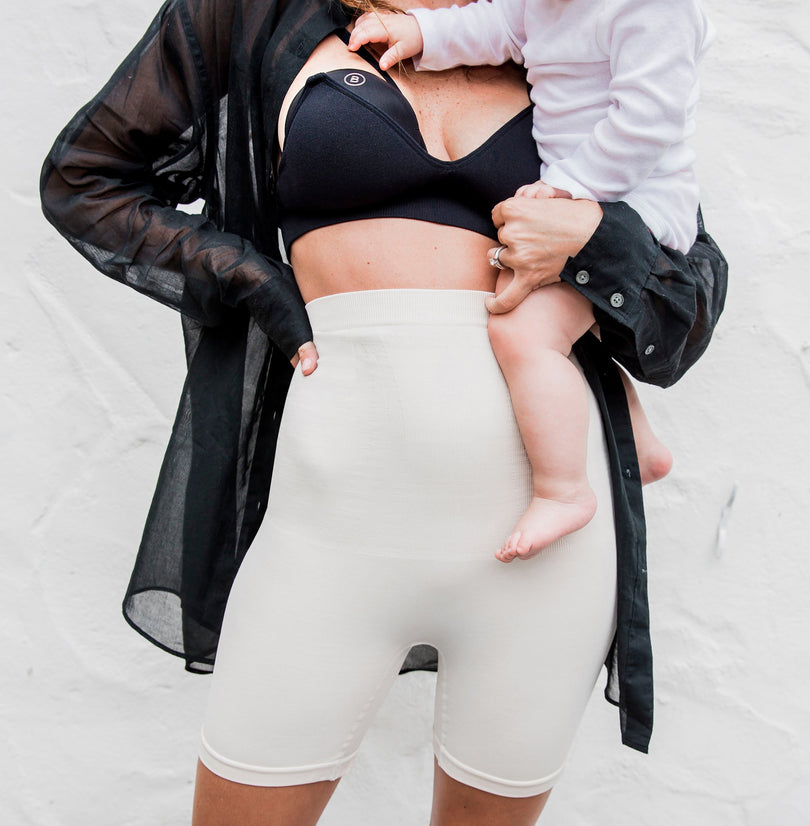Having a C-section, or cesarean delivery, can take a toll on your body. This type of childbirth method is considered major surgery, so you can expect to need plenty of time to recover. Keep in mind that healing from a C-section takes longer than recovering from a vaginal birth. Your doctor will provide you with detailed instructions on what to do and what not to do as your body heals, but having an idea of what to expect beforehand can help ease your worries.



These tips can help you make a smooth recovery after your C-section. Just remember above all else to give your body time to fully heal before going back to your regular activities. Take the down time to enjoy your new bundle of love and relax the best you can!
Here are 4 tips to keep in mind on improving your recovery after a C-section:

1. Rest when you can.
While this might sound unrealistic when you’re juggling newborn duties, such as feeding and diaper changes, it’s important to get some rest. This allows your body to heal properly and lowers your risk of complications. Keep in mind that newborns spend a lot of their time sleeping, which gives you a chance to take it easy and make sure that you’re getting enough sleep. You can also make things even easier for yourself by making sure you have everything you need nearby. Ideally, you should try to keep most items in arm’s reach, so you won’t have to be up on your feet too much, especially during the first week or so after surgery. If you’re worried about getting things done around the house, ask others to help you out. Your partner, family members or friends can pitch in to keep your house clean or help you take care of your newborn. Why are rest and sleep so important after a C-section? Your brain stays busy while you’re asleep. It releases hormones that help promote the growth of healthy new tissue to replace tissue that was damaged during your C-section, which can speed up the healing process. You’ll also have a lower risk of infection at the surgical site, since your body’s supply of white blood cells goes up during sleep. This can help keep harmful bacteria at bay.2. Don’t rest too much.
Although rest and sleep are a crucial part of your recovery, you shouldn’t spend all of your time off your feet. Getting up to walk and move around can actually help promote healing. Doing so helps improve blood flow in your body and ensures that your muscles stay strong as you recover. Walking around can also lower certain risks associated with C-section recovery, such as blood clots and constipation. Just make sure that you get your doctor’s approval before doing anything other than walking. In many cases, doctors advise women who have had C-sections to avoid doing anything strenuous for about 6 weeks after surgery. Strenuous activities, such as doing sit-ups, running or jogging, can put too much strain on your body while it’s trying to heal. It also increases your risk of injuring the surgical site or opening your incision, which can raise your risk of infection and delay your recovery. You should also avoid lifting heavy objects until your doctor says it’s ok. For the first 6 weeks or so, your newborn should be the heaviest object you’re lifting.
3. Watch for signs of complications.
Even if your C-section goes smoothly, you’re still at risk of complications afterwards. Since some of these can be serious, it’s important to know what to look for:- Infection: Keeping your incision clean and dry should allow it to heal properly, but these sites can sometimes become infected. Let your doctor know if you see any signs of a possible infection in this area, such as redness, discharge or severe pain. You might also run a fever if your incision becomes infected.
- Heavy bleeding: You can expect to have some vaginal bleeding for up to 8 weeks after delivery. While this is normal, you should call your doctor if you’re bleeding so much that you’re soaking through sanitary pads in a short amount of time- like an hour. You should also call your doctor if bleeding becomes heavier instead of lighter and is a bright red color more than 4 days after your C-section. Avoid using tampons while you’re bleeding until your doctor says it’s ok to. Use sanitary pads instead.
- Severe pain: It’s normal to experience some abdominal pain after a C-section, but severe pain in your belly could indicate a problem that needs medical attention. Let your doctor know if your belly feels hard or tender, or if you’re having severe pain that isn’t getting better after taking approved pain relievers.
4. Take care of yourself.
Although your newborn needs your attention, don’t forget to take care of yourself. Making sure you eat healthy foods and drink plenty of fluids can help speed up the recovery process. Most foods should be fine for you to eat, but you might want to stick to blander foods, like rice or toast, if your stomach bothers you. Try to include foods with fiber in your diet to lower your risk of constipation, or ask your doctor about taking a fiber supplement during recovery if you do end up being constipated. Drinking plenty of water and other fluids also helps you recover from a C-section, since they replace the fluids your body lost during surgery. Keep in mind that breastfeeding also causes you to lose fluids. Drinking more fluids helps replace those as well and prevent dehydration. Fluids also reduce your risk of constipation after a C-section.
These tips can help you make a smooth recovery after your C-section. Just remember above all else to give your body time to fully heal before going back to your regular activities. Take the down time to enjoy your new bundle of love and relax the best you can!




